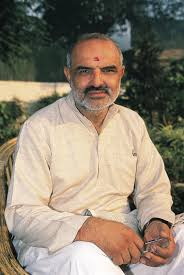Sahib Singh Verma: 7 Inspiring Lessons from His Leadership and Legacy
Introduction
Sahib Singh Verma was a distinguished Indian politician, social activist, and educationist who left a lasting impact on Delhi’s governance and India’s labor policies. Known for his simplicity, grassroots connection, and commitment to public welfare, he served as the Chief Minister of Delhi (1996–1998) and later as the Union Minister of Labour.
His tenure was marked by reforms in education, labor welfare, and infrastructural development. Even years after his passing, his contributions continue to inspire leaders and citizens alike.
This article explores Sahib Singh Verma’s life, achievements, daily life impacts, and his enduring significance in Indian politics.
Biography of Sahib Singh Verma
Early Life and Education
- Born: 15 March 1943, Mundka, Delhi
- Education: Master’s Degree in Library Science from Aligarh Muslim University
- Profession: Initially worked as a teacher before entering politics
- Family: Married to Sahib Kaur; had children, including Parvesh Verma (BJP politician)
From humble beginnings in a farming family, Sahib Singh Verma rose to become a powerful leader with a deep understanding of rural and urban issues.
Political Career and Key Positions
- 1977: Joined active politics during the Janata Party movement.
- 1983: Elected as a Councilor in the Municipal Corporation of Delhi (MCD).
- 1993: Became an MLA from Delhi, representing BJP.
- 1996–1998: Served as the 4th Chief Minister of Delhi.
- 2002–2004: Appointed as Union Minister of Labour in Atal Bihari Vajpayee’s government.
His focus on education, labor rights, and rural development shaped his policies and made a significant impact on governance.
Daily Life Impacts of Sahib Singh Verma’s Work
Sahib Singh Verma’s policies and leadership have influenced millions of people, particularly in Delhi and India’s labor sector.
1. Education Reforms and Rural Development 🎓🏡
- Established new schools and improved existing educational facilities in rural Delhi.
- Focused on literacy programs, making education accessible to underprivileged children.
2. Infrastructure Development in Delhi 🏗️
- Initiated projects for better roads, transport facilities, and urban planning.
- Introduced flyovers and road widening projects to ease traffic congestion.
3. Labor Welfare and Social Security 👷♂️
- As Union Minister of Labour, he worked on minimum wage reforms and pension schemes for workers.
- Strengthened social security policies for unorganized laborers.
4. Strengthening BJP’s Base in Delhi 🏛️
- Played a crucial role in expanding BJP’s influence in Delhi politics.
- Worked towards unifying rural and urban voters, bridging the development gap.
5. Farmer and Worker Empowerment 🚜
- Advocated better support systems for farmers and laborers.
- Implemented worker welfare programs and rural employment schemes.
6. Delhi’s Water and Power Reforms 💧⚡
- Worked on improving water supply infrastructure in outer Delhi.
- Focused on power distribution reforms for uninterrupted electricity.
7. Promotion of Cultural and Traditional Values 🏵️
- Encouraged the preservation of traditional Indian values through education and governance.
- Supported initiatives that promoted Indian heritage, arts, and rural development.
His governance approach was inclusive, focusing on grassroots development, labor welfare, and education.
All About Sahib Singh Verma’s Contributions
Sahib Singh Verma was a leader who believed in service over self-interest. His leadership style was simple yet impactful, focusing on the upliftment of marginalized communities.
Some of his biggest contributions include:
✅ Strengthening Delhi’s infrastructure and governance
✅ Uplifting farmers, laborers, and the working class
✅ Reforming labor laws to ensure fair wages and pensions
✅ Focusing on education, literacy, and rural development
His governance remains a benchmark for leadership rooted in integrity and development.
History and Facts About Sahib Singh Verma
| Fact | Details |
|---|---|
| Born | 15 March 1943 |
| Died | 30 June 2007 (road accident) |
| Education | Master’s in Library Science (AMU) |
| Political Party | Bharatiya Janata Party (BJP) |
| Notable Positions | CM of Delhi (1996–1998), Union Labour Minister (2002–2004) |
| Major Focus Areas | Education, labor welfare, rural development |
| Legacy | Inspired many young leaders, including his son Parvesh Verma |
He left behind a rich legacy of social service, governance, and commitment to public welfare.
Frequently Asked Questions (FAQs)
1. Why is Sahib Singh Verma famous?
He is known for his tenure as Chief Minister of Delhi and as Union Labour Minister, where he worked on education, labor rights, and rural development.
2. What were his biggest contributions?
His biggest contributions were education reforms, infrastructure projects in Delhi, and labor welfare schemes.
3. How did he impact Delhi’s development?
He introduced major road and infrastructure projects, improved public transport, and strengthened power and water supply systems.
4. What role did he play in labor welfare?
As Union Labour Minister, he worked on minimum wage policies, pension reforms, and social security for unorganized workers.
5. How did Sahib Singh Verma pass away?
He died in a tragic road accident on 30 June 2007, while returning from Rajasthan. His sudden demise was a huge loss for Indian politics.
Significance of Sahib Singh Verma in Indian Politics
Sahib Singh Verma was a leader of the people, and his significance can be seen in:
- His pro-poor, pro-worker policies, ensuring better wages and social security.
- His focus on education, helping thousands of students get access to schools.
- His rural development initiatives, making Delhi’s outskirts more livable.
- His honest and hardworking leadership, admired even by political rivals.
He remains an inspiration for leaders who want to bring real change in governance.
Observance and Recognition
Even after his passing, Sahib Singh Verma is remembered for:
✅ His dedication to labor rights and rural development
✅ His role in Delhi’s infrastructure transformation
✅ His legacy of clean, honest politics
Many institutions, roads, and public places have been named in his honor, keeping his memory alive.
Wishing Sahib Singh Verma’s Legacy Lives On
For those who respect Sahib Singh Verma’s contributions, the best way to honor his memory is to:
- Support education and labor welfare initiatives.
- Encourage honest and people-centric governance.
- Promote rural development and infrastructure projects.
A Message of Respect:
“Sahib Singh Verma’s selfless service and dedication to India’s growth will always be remembered. May his vision continue to guide future generations.”
Important Points About Sahib Singh Verma
✅ Chief Minister of Delhi (1996–1998)
✅ Union Labour Minister (2002–2004)
✅ Advocate for education, labor rights, and rural development
✅ Known for honest and pro-people governance
✅ Left a lasting impact on Delhi’s infrastructure and policies
Conclusion
Sahib Singh Verma was more than a politician—he was a leader with a mission to uplift society. His vision for education, labor welfare, and infrastructure development still benefits millions today.
His legacy continues to inspire leaders, workers, and citizens, proving that true leadership is about service, honesty, and commitment to the people.
Would you like any modifications or additions? 😊










